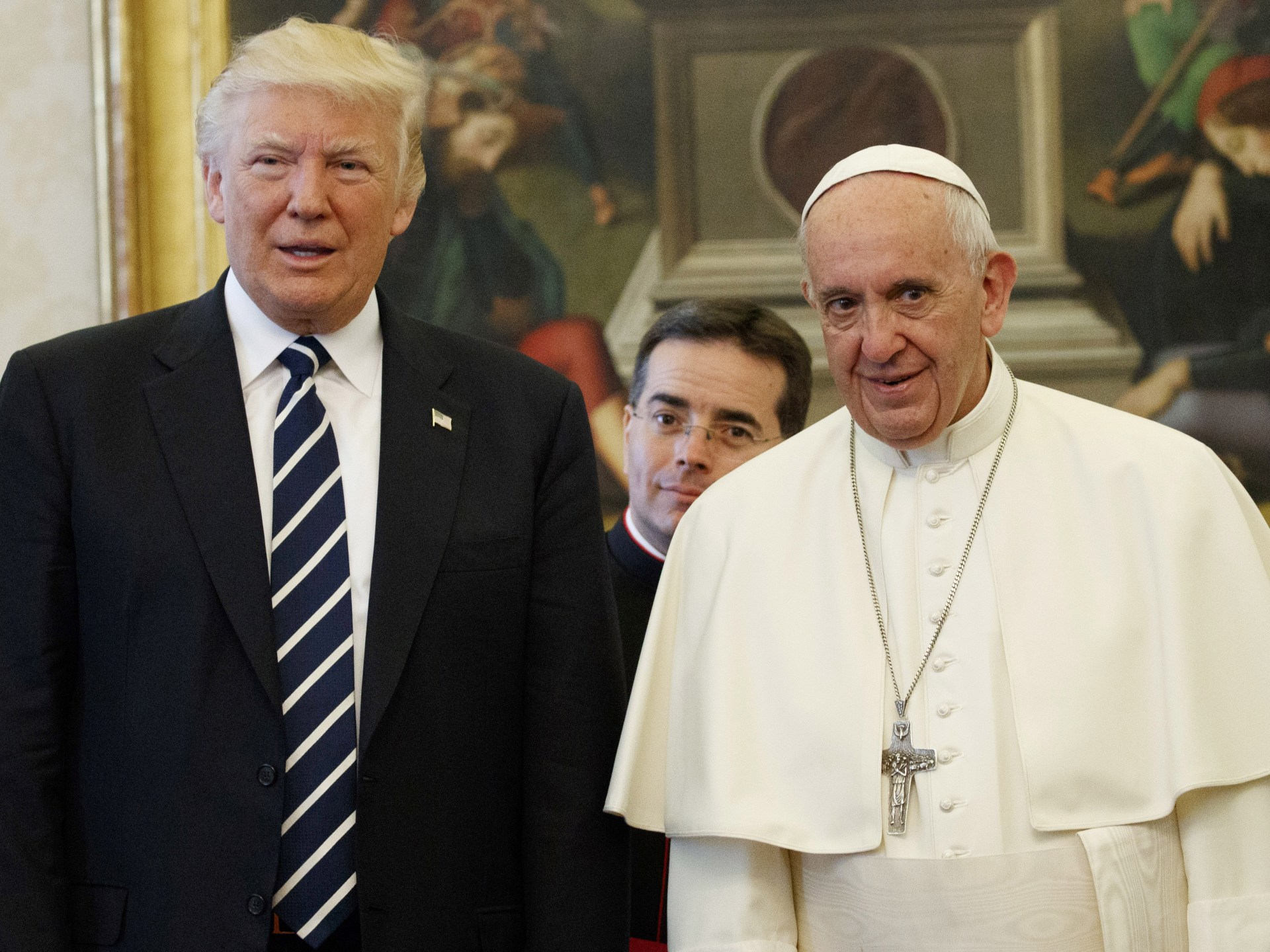Faith vs. Pharmacy: CVS Settles Discrimination Lawsuit with Catholic Nurse Practitioner
Religion
2025-03-25 18:30:00Content

In a landmark legal battle that highlights the ongoing tension between personal beliefs and professional responsibilities, Gudrun Kristofersdottir has taken a bold stand against CVS MinuteClinic after her controversial dismissal in early 2024. The healthcare professional found herself at the center of a heated dispute when she was terminated for refusing to prescribe contraceptive medications based on her personal convictions.
Kristofersdottir's lawsuit challenges the boundaries between individual religious or moral beliefs and workplace expectations in the healthcare industry. Her case raises critical questions about employee rights, medical professional ethics, and the delicate balance between personal principles and job requirements.
The lawsuit filed against CVS MinuteClinic seeks to address what Kristofersdottir believes was an unjust termination, potentially setting a significant precedent for similar workplace conflicts involving medical professionals' right to conscientious objection.
As the legal proceedings unfold, the case continues to spark intense debate about the complex intersection of personal beliefs, professional responsibilities, and reproductive healthcare rights in modern medical practice.
Conscience Clash: Healthcare Professional's Principled Stand Sparks Nationwide Debate
In the intricate landscape of modern healthcare, where personal beliefs intersect with professional responsibilities, a compelling narrative emerges of individual conviction challenging institutional expectations. The story of Gudrun Kristofersdottir represents a profound moment of ethical deliberation, highlighting the complex tensions between personal moral principles and professional obligations in contemporary medical practice.When Personal Ethics Collide with Professional Mandates: A Healthcare Professional's Courageous Choice
The Ethical Dilemma in Modern Healthcare
Healthcare professionals increasingly find themselves navigating complex moral terrains where personal convictions challenge institutional protocols. Gudrun Kristofersdottir's experience at CVS MinuteClinic exemplifies this nuanced challenge, where individual conscience confronts standardized medical practice. Her principled refusal to prescribe contraceptives or specific medications underscores a broader societal conversation about professional autonomy, religious freedom, and institutional expectations. The contemporary medical landscape demands not just technical competence but also profound ethical sensitivity. Practitioners must balance personal beliefs with professional responsibilities, a delicate equilibrium that requires sophisticated moral reasoning and deep introspection. Kristofersdottir's stance illuminates the intricate negotiations between individual conscience and institutional frameworks.Legal and Professional Implications of Conscientious Objection
The legal ramifications of Kristofersdottir's lawsuit against CVS MinuteClinic extend far beyond her individual case, potentially establishing significant precedents for healthcare professionals' rights. Her legal challenge raises critical questions about the boundaries of professional conduct, religious accommodation, and the extent to which personal beliefs can influence medical practice. Employment law intersects complex domains of religious freedom, professional standards, and institutional policies. Kristofersdottir's situation demonstrates the evolving nature of workplace rights, particularly in sensitive fields like healthcare where personal convictions can dramatically impact professional responsibilities. Her lawsuit represents a pivotal moment in understanding the delicate balance between individual autonomy and institutional requirements.Broader Societal Perspectives on Medical Professional Autonomy
The broader societal implications of Kristofersdottir's case resonate across multiple domains, challenging established norms about professional conduct and individual rights. Her principled stand invites critical examination of how institutions manage diverse belief systems while maintaining consistent service standards. Medical professionals operate within intricate ethical frameworks that demand nuanced understanding of personal beliefs, professional obligations, and societal expectations. Kristofersdottir's experience highlights the ongoing dialogue about individual conscience, institutional policies, and the evolving understanding of professional autonomy in contemporary healthcare settings.Institutional Responses and Future Implications
CVS MinuteClinic's response to Kristofersdottir's principled stance reveals broader institutional approaches to managing diverse professional perspectives. Her termination signals potential systemic challenges in accommodating individual beliefs within standardized medical protocols. The case underscores the need for sophisticated institutional policies that can simultaneously respect individual conscience and maintain high-quality, consistent healthcare services. Future healthcare frameworks must develop more nuanced approaches to managing professional diversity, ethical considerations, and institutional requirements.Psychological and Emotional Dimensions of Professional Integrity
Beyond legal and institutional considerations, Kristofersdottir's experience illuminates the profound psychological dimensions of maintaining personal integrity within professional contexts. Her willingness to risk professional stability for principled beliefs demonstrates remarkable moral courage and self-reflection. The emotional landscape of such ethical decisions involves complex psychological negotiations, balancing personal convictions with professional aspirations, potential career consequences, and broader societal expectations. Kristofersdottir's journey represents a deeply human narrative of navigating challenging moral terrain with authenticity and conviction.RELATED NEWS
Religion

Faith vs. State: Stitt Drops Hammer on Religious Freedom with Bold Executive Order
2025-04-01 03:50:00
Religion

Vatican Watch: Pope Francis Battles Health Challenges, Tenth Day in Hospital Raises Global Concern
2025-02-24 11:48:00
Religion

Sacred Brew Battle: Utah Judge Sides with Religious Group in Psychedelic Sacrament Showdown
2025-03-19 16:40:16





